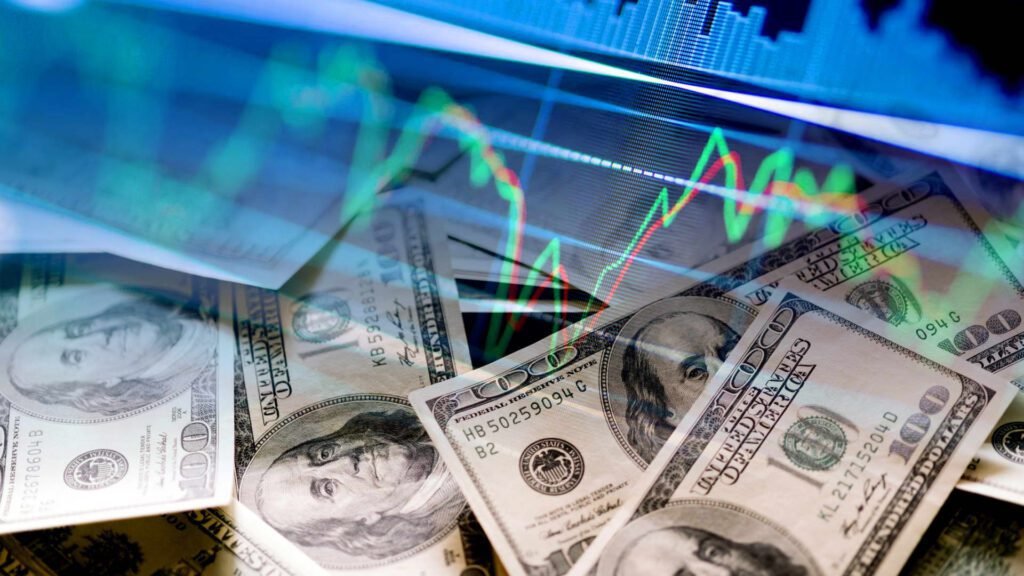Americans continue their love affair with cash, despite the Federal Reserve’s expected interest rate cut next week. But experts warn that if they want to lock in attractive yields, they should take action. Money market fund assets hit $6.3 trillion in the week ending Wednesday, another record high, according to the Investment Company Institute. These funds attract inflows due to favorable dividend payout ratios. The seven-day annualized yield of the Crane 100 list of the top 100 taxable money funds is currently at 5.08%. Bank of America expects these inflows to continue even after the Fed starts cutting interest rates. The Fed is scheduled to meet on September 17-18, and more than 70% of traders expect a 0.25 percentage point cut in the federal funds rate, according to CME Group’s FedWatch tool. The rest of the traders think it will be a 50 basis point cut. “Unless interest rates fall below 2%, a Fed rate cut is unlikely to free up money market fund cash. A Fed rate cut should slow inflows into money market funds, but outflows are unlikely unless the cut is larger than the market expects,” Bank of America strategist Mark Cabana wrote in a note last week. When investors pull out of money market funds, history shows they move into bonds rather than stocks, he said. Institutional investors will also continue to move money into money market funds if the Fed cuts rates. That’s because those with money in direct money market investments such as Treasuries will be hit by a rate cut sooner than money market funds, explained Peter Crane, founder of Crane Data, which tracks the industry. “Money fund yields follow the Fed, so they should fall by 25 basis points in the month following any Fed action,” Crane said, assuming the central bank cuts rates by 25 basis points. Get moving Experts warn investors not to hold too much cash. Instead, they should figure out how much they’ll need for emergencies and how much they want to keep liquid for future opportunities and purchases, said Ted Jenkin, a certified financial planner and founder of oXYGen Financial. In that case, you can leave the money in liquid assets like money market or high-yield savings accounts. For cash that can be locked in for a little longer, consider term deposits and act early, he said. “If you want to maximize the return on your cash over the next 12 months, it’s probably best to lock in a nine- or 12-month CD rate,” said Jenkin, a member of the CNBC Financial Advisor Council. “These rates are at their highest because the Fed is going to be cutting rates over the next 12 months.” CD rates are already falling, according to BTIG, with American Express and Bread Financial both cutting their 12-month rates last week. The firm believes banks are steering customers to savings accounts that don’t offer fixed interest rates. Still, dividends are attractive. Bread Financial remains at the top with a 4.9% annualized interest rate. Once you have adequate cash needs, you should consider moving excess funds into bonds, Jenkin said. “It’s a great time to extend the duration of your bonds,” Jenkin said. He’s extending to five and 10 years, and he likes investment-grade corporate bonds. UBS’s Leslie Falconio agrees, calling the 4.5- to 5-year portion the “sweet spot.” “Investment-grade corporate issuance hit an all-time high in the first week of the month, but investor demand is still there,” he said. There’s a lot of inflows into the asset, and investors can get high yields on high-quality assets, added Falconio, head of taxable fixed-income strategy at UBS Americas. She also likes agency mortgage-backed securities, a high-quality, liquid sector. The instruments are debt securities issued by government agencies such as Fannie Mae, Freddie Mac and Ginnie Mae, whose cash flows are tied to mortgage interest and payments. With a U.S. government guarantee, they are considered a low credit risk. “We’re not betting on defaults or high yields, we just think yields are too tight,” Falconio said. Another area investors are watching is preferred stocks, which Jenkin said tend to do very well when interest rates fall. The securities are hybrids that trade on an exchange like stocks but have a par value and pay income like bonds. “It’s the forgotten asset class,” he said. “It’s a good time to own because yields are going to be stable and prices are going to rise.”
Subscribe to Updates
Subscribe to our newsletter and stay updated with the latest news and exclusive offers.
Money market funds hit record highs, but experts warn it’s time to exit cash
Related Posts
Add A Comment
Services
Subscribe to Updates
Subscribe to our newsletter and stay updated with the latest news and exclusive offers.
© 2026 Business Investopedia. All Rights Reserved.



